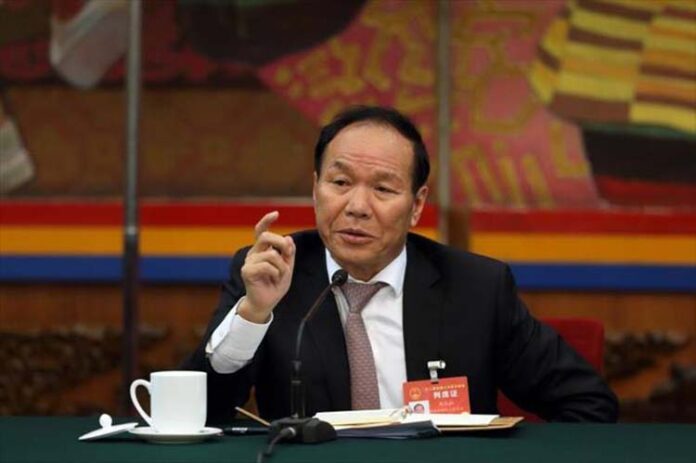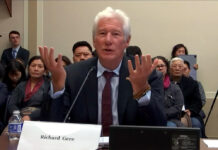
(TibetanReview.net, Oct06’21) – In a routine reshuffle ahead of the five-yearly congress of the Communist Party of China due next autumn, Qizhala (or Che Dalha), chairman of the Tibet Autonomous Region (TAR) government, has left Lhasa to take up a new job in Beijing, reported the scmp.com Oct 6, citing a source close to the government. Like his predecessors, he is likely to get a post in the National People’s Congress, a common destination for regional chiefs in the final years of their career.
Chinese law requires that the government head or chairman of an ethnic minority region should be from the ethic group. The Chairman takes his orders from and is accountable to the regional party chief who is appointed by Beijing. The party chief of TAR has always been a Chinese.
Qizhala, 63, has been head of the regional government since 2017. He is an ethnic Tibetan from a traditional Tibetan area that is now part of China’s Yunnan Province. In 2016 he led a delegation from Chinese ruled Tibet to Washington, when the group was received by House Democrats leader Nancy Pelosi, the report noted.
Qizhala’s vacancy is expected to be filled by Lhasa Communist Party chief Yan Jinhai, a 59-year-old Tibetan belonging to Qinghai Province. He holds a bachelor’s degree in Chinese language and literature.
Also expected to leave his post is Wu Yingjie, the TAR’s party chief. He will reach the retirement age of 65 for ministerial level officials in November and is also expected to leave by then, the report said.
Wu spent his entire career in TAR and it is no clear yet who will succeed him, the report noted.
The party congress is expected to retain Xi Jinping, 68, as the party general secretary, paving the way for him remain the state President for a third five-year term, and possibly for life. This is because China in 2018 amended its constitution to remove the term limit for the President.
Xi is seen as China’s most powerful leader since Mao Zedong. Under his signature anti-corruption campaign, Xi has brought down many leaders perceived as threat to his position.





